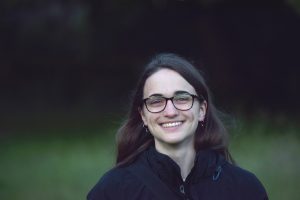This week for #WomenonWednesdays we spoke to Katie Marrow, a first-year PhD student in the Plasma Physics group and University Challenge contestant for Imperial.
Describe your path into physics, what kickstarted it?

I’ve wanted to be a physicist since I was about 9. I was very interested in space so had toyed with the idea of becoming an astronaut, but then I heard about the LHC and decided a particle physicist was much cooler. This ambition persisted to the point that several years later I persuaded my family to go on holiday to Geneva so that we could visit CERN. Once I came to university, a combination of my first-year research project and UROPs made me realise that I really love plasma physics and I want to go into experimental research. Now I’m lucky enough to be starting a PhD in plasma at Imperial in October.
What would you consider the “highlights” of your undergraduate experience?
Being on Imperial’s University Challenge team was definitely a highlight, although a lot of stress at the time! It was refreshing to use some knowledge from outside my degree (slightly embarrassingly, I think our weakest subjects on the show ended up being the ones we were studying). It was also important to me to show that a UC team doesn’t have to be four white, straight men – despite what certain twitter commentators seem to think! Diversity in a quiz team (or indeed any group) gives the advantage of a broader and more interesting knowledge base.
On the academic side of things, getting experience of research from my MSci project and UROPs has been the main highlight. I have also really enjoyed the experience of being a student in London – there is so much happening, and I like the fact that I can always take a break from doing science by going to art galleries or concerts.
What’s your PhD project going to be focused on?
My PhD project is in plasma physics. I’ll be working on the MAGPIE pulsed-power generator in the basement of Blackett, focusing on X-ray driven plasma ablation experiments. As well as learning more about fundamental plasma processes, this has potential applications in, for example, inertial confinement fusion.
During your journey, what has your experience been being a woman in Physics?
There have been some negative experiences, and I’m hoping that at some point I will stop feeling like an imposter! However, during university I’ve met so many talented, confident, and interesting women in physics at many different career stages, and I feel lucky to be part of this community. One especially positive moment was attending the Conference for Undergraduate Women and Non-Binary Physicists this year in Glasgow. I heard from physicists working in so many fascinating fields, and when you are in a minority in your subject, it is reassuring to meet other people in a similar position to you. I had been having quite a difficult time in my final year, and it reminded me why I want to study physics and why I love it.